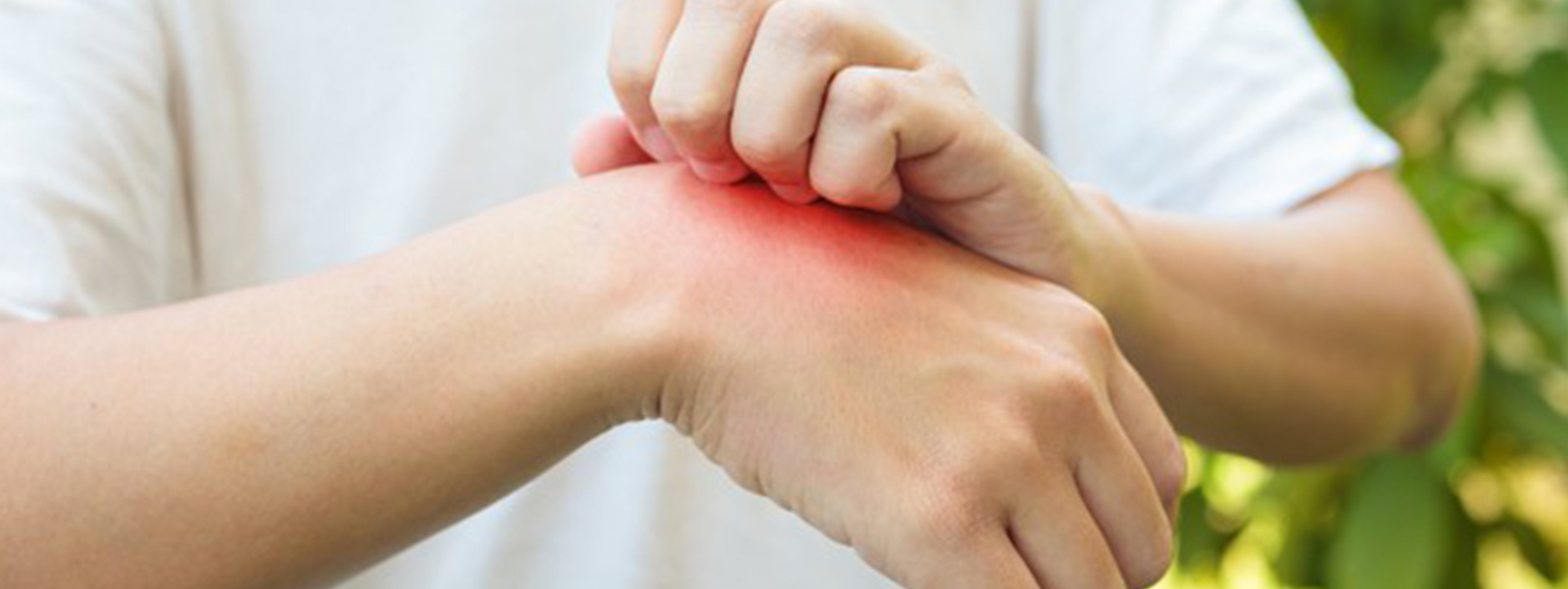Cambridge Pest Control: Why Do Mosquito Bites Itch?

When summer arrives in Cambridge, there are many outdoor activities to enjoy, but one problem that may put a damper on your fun is the presence of mosquitos. These pesky insects usually arrive at human gatherings in numbers and cause itchy welts that can last for days, as they feed on the blood of living things. At Truly Nolen, our teams that specialize in mosquito removal in Cambridge have a few answers for you about why mosquitoes bite, what causes the itch and when to call us for help to treat your property.
What Is a Mosquito?
Mosquitos are flying insects that have two wings and a beak or proboscis that helps them feed. The male of the species eats nectar, while the female feeds on living blood from all types of mammals, including people. There are many different species of this insect, and the ones you encounter in Cambridge appear when the weather grows warm and bite all summer long.
Why Do Mosquito Bites Itch?
When mosquitoes bite, you probably will not feel the initial sting. They seek out people in a variety of ways, including:
- Body Heat
- Scent
- Exhalation of carbon dioxide
Once mosquitos find their prey, they break the skin with their proboscis and inject some of their saliva, which contains proteins and an agent that prevents clotting. You may not even notice them as they feed because the anti-clotting agent allows them to feed freely.
When the female mosquito is finished feeding and flies off, your body begins to react to the saliva and proteins that it considers foreign and releases histamine to fight them. As a result, the area swells and begins to itch, resulting in the familiar welt that appears after a bite. Depending on your body’s sensitivity, these welts are either minor or may swell to a considerable size. The area around the welt may feel itchy and develop redness as well.
How Long Do Mosquito Bites Last?
Depending on how sensitive you are to a mosquito’s saliva, a bite can last for several days or as long as a week. It may also itch for the first day, reduce in size the next day, then turn pink and resume itching. Scratching the bite may also cause it to swell and itch repeatedly and eventually cause infection, so you may want to avoid this and apply cortisone cream instead. Covering the bite may also discourage you from scratching the welt. You can also apply an antibiotic to the bite to lower the risk of infection.
Are Mosquito Bites Dangerous?
While most mosquito bites are little more than annoying welts, they can pose a danger if you are bitten around the eye, which may obstruct your vision. Mosquitos also carry diseases like West Nile Virus and can cause deadly heartworm disease in your pets. While the odds of becoming ill from a mosquito bite are relatively low, the risk is often worth treating your home.
The potential danger that mosquito bites can cause is a good reason to call us for mosquito removal in Cambridge. Our technicians have the know-how and the tool to eradicate these pesky blood-sucking insects and help you reclaim your backyard or patio. They will begin with a property inspection and find potential breeding sites, such as birdbaths, ponds and other stagnant water sources. Even moist areas, such as gardens, can be a haven for female mosquitos who need to lay their eggs. Our technicians will then treat your property even so often to reduce the mosquito population.
Mosquito bites are unpleasant for everyone in the family and can make outdoor activities challenging when the weather turns warm, but you do not have to endure these pests. Contact us today for more information about our mosquito treatment plans and how we can help these insects buzz off for good.